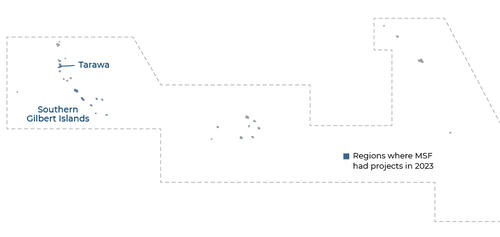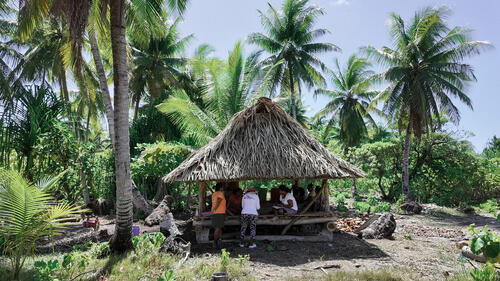Kiribati’s health system struggles to meet people’s needs, due to a lack of qualified medical personnel and equipment. To help address these shortfalls, MSF has been running medical programmes in the country since 2022, focusing on maternal, neonatal and paediatric care.
The impacts of climate change, such as storm surges, salinisation of the water table, and drought, are reducing the availability of fresh and nutritious food in Kiribati. This has compounded the already significant burden of diet-related diseases such as malnutrition among children, and diabetes and hypertension – which are aggravated by high rates of obesity – among adults.
In addition, the number of maternal and neonatal deaths remain high, with a reported stillbirth rate of two per cent of all births. In 2023, our teams worked to improve basic neonatal care in the first 24 hours of life at clinics and hospitals in the capital, Tarawa, by providing training and clinical oversight to local health professionals, as well as tending directly to patients.
MSF teams also offered care, supervision and management support to the paediatric and obstetric departments of Tarawa’s main hospitals, and were instrumental in identifying a significant number of severely malnourished children, whom our staff then treated.
On the remote Southern Gilbert Islands, we trained staff in the Helping Babies Breathe neonatal resuscitation programme. We also strengthened the provision of maternal healthcare; for example, helping to improve the outcomes of pregnant women with diabetes-related high blood pressure or pulmonary embolism.
In addition, MSF supported the Ministry of Health and Medical Services to improve the management of all pharmacy processes, including identifying medical suppliers, ordering supplies and monitoring consumption.





